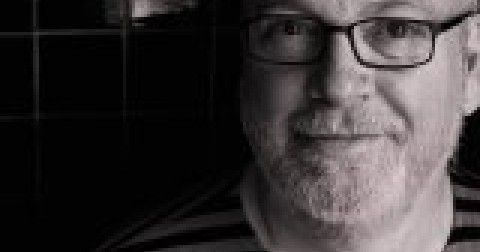
About Andrew Ford
Andrew Ford is a composer, writer and broadcaster. His music has been played in many parts of the world and featured at international festivals as far-flung as Houston and Huddersfield, Salzburg and Seoul.
Ford’s music has been performed by the Australian Chamber Orchestra, the Black Dyke Band, the Brodsky Quartet, the dèdalo Ensemble (Brescia), the Da Capo Chamber Players (New York), Duo Stump-Linshalm (Vienna), Ensamble 3 (Mexico City), Het Trio (Amsterdam), the London Sinfonietta, the New Juilliard Ensemble (New York), the Pittsburgh New Music Ensemble and all Australia’s major orchestras and ensembles. His works have been conducted by Oliver Knussen, Reinbert de Leeuw, James MacMillan, Brett Dean, Paul Daniel and Jeffrey Tate, his piano pieces played by Peter Donohoe, Lisa Moore, Ananda Sukarlan, Michael Kieran Harvey and Gerard Willems, and his songs sung by Yvonne Kenny, Sarah Leonard, Merlyn Quaife, Teddy Tahu Rhodes and Gerald English. English, indeed, has sung a dozen works by Ford, most notably the music-theatre piece, Night and Dreams: the death of Sigmund Freud (words by Margaret Morgan), which he premiered at the Adelaide Festival in 2000, before taking it to the Sydney and Melbourne festivals in 2001. A recording of the piece was released on Decca Eloquence in 2008.
Born in Liverpool, England, in 1957, Andrew Ford spent much of his childhood listening to the Beatles and other Sixties pop groups. A complete failure at piano lessons, he began to compose his own music as a teenager while at St Olave’s School in Kent, where his family had moved in 1967. In 1975, he went to the University of Lancaster where he studied composition with Edward Cowie and John Buller and had a formative meeting with Sir Michael Tippett who persuaded him to forget about musical systems and trust his instincts as a composer.
After graduating with honours in 1978, Ford was appointed Fellow in Music at the University of Bradford where he conducted the choir and orchestra in repertoire ranging from Bach to Birtwistle, and ran a concert series to which he welcomed a wide range of musicians including Janet Baker, Frans Brüggen, Ravi Shankar and Carla Bley. In 1983, he moved to Australia to join the Faculty of Creative Arts at the University of Wollongong, teaching composition, but also lecturing on a variety of music from Renaissance polyphony to punk. While there, he completed a Doctorate, writing his thesis on the topic of musical word setting. Between 1992 and 1994, Ford took leave from the university in order to be composer in residence with the Australian Chamber Orchestra. In 1995, Ford retired from academe and ever since has presented The Music Show each Saturday morning on ABC Radio National.
Between 1998 and 2000 Ford was the Peggy Glanville-Hicks Fellow. During this period he completed many new pieces and began work on The Waltz Book, to a commission from the pianist Ian Munro. Consisting of 60 minute-long waltzes, the project took more than four years to complete, and has been widely played (in whole and part) since its premiere in 2003. A recording appeared on Tall Poppies in 2010.
At the end of 2004, Ford received a two-year Fellowship from the Music Board of the Australia Council, allowing him to work on a range of pieces. These included Scenes from Bruegel, premiered in New York in 2006 by the New Juilliard Ensemble conducted by Joel Sachs, and the song cycle Domestic Advice for soprano Jane Edwards. He also composed his first Symphony for the Australian National Academy of Music, conducted there by Artistic Director Brett Dean in November 2008 (Ford was ANAM’s Resident Composer in 2009). Other recent works include Headlong , commissioned by the Sydney Symphony for the orchestra’s 75th anniversary season in 2007, Thin Air , written for the Sydney International Piano Competition in 2008 and the opera Rembrandt’s Wife , to a libretto by Sue Smith. Commissioned and premiered by Victorian Opera in April 2009, Rembrandt’s Wife won the 2010 Green Room Award for best new Australian opera.
Andrew Ford’s other prizes include the Yorkshire Arts Composers Award which he won jointly with Mark-Anthony Turnage in 1982 (for Portraits ), the Sydney Spring Festival award in 1998 (for Tattoo) and the 2002 Jean Bogan Prize (for The Waltz Book). In 2004, Learning to Howl received both the AMC award for the best composition by an Australian composer and the prestigious Paul Lowin Song Cycle Prize. Tales of the Supernatural was named APRA vocal work of the year in 2005. The radiophonic version of his choral piece, Elegy in a Country Graveyard, was shortlisted for the 2007 Prix Italia, and his orchestral song A Dream of Drowning (to words from Tim Winton’s novel Breath) was shortlisted for a 2011 Art Music Award. In 2012Rauha won the Albert H. Maggs Award from the University of Melbourne.
Ford has also won awards for his writing about music, notably the Geraldine Pascall Prize for critical writing in 1998. He has published seven books, most recently Try Whistling This -writings about music (Black Inc., 2012), and has written and presented four acclaimed series for ABC Radio: Illegal Harmonies (1997), Dots on the Landscape (2001), Music and Fashion (2005) and The Sound of Pictures (2007–10).